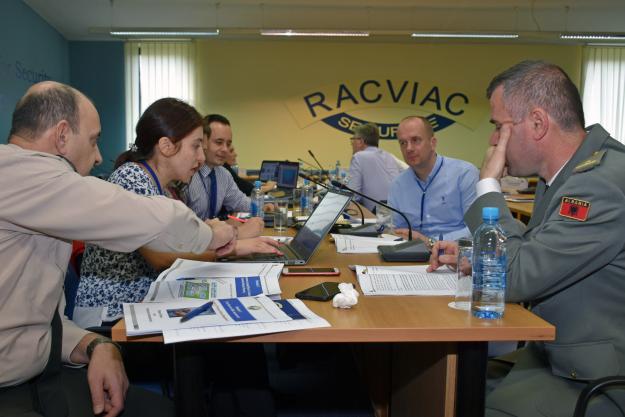
THE HAGUE, Netherlands — 28 February 2020 — Chemical safety and security specialists from South-Eastern Europe shared expertise and best practices at a workshop run by the Organisation for the Prohibition of Chemical Weapons (OPCW) in collaboration with the Regional Arms Control Verification and Implementation Assistance Centre (RACVIAC), held in Rakitje, Croatia, from 25-26 February 2020.
In his opening statement, the Director of RACVIAC, Major General (ret.) Jeronim Bazo underlined that “the Convention’s implementation is an issue of extraordinary importance due to chemical safety and security being essential to the prevention of accidental or intentional misuse of highly toxic materials”.
Dr Rohan Perera, Senior International Cooperation Officer with OPCW International Cooperation Branch stated that “chemical safety and security are important components of peaceful applications of chemistry”.
During the workshop, representatives from National Authorities, national defence ministries, industry associations, policy makers, and customs authorities shared knowledge and views on innovative approaches to ensuring chemical safety and security. They also discussed the development of national action plans and frameworks to improve chemical safety and security management through scenario-based strategies.
These best practices and approaches will be applied towards contributing to the efforts made by the Member States and the region for managing potential chemical threats.
Eighteen participants from Albania, Bosnia and Herzegovina, Croatia, North Macedonia, Montenegro, Romania, Serbia and Turkey attended the workshop.
Background
As the implementing body for the Chemical Weapons Convention, the OPCW, with its 193 Members, oversees the global endeavour to permanently eliminate chemical weapons. Since the Convention’s entry into force in 1997, it is the most successful disarmament treaty eliminating an entire class of weapons of mass destruction.
Over 97% of all chemical weapon stockpiles declared by possessor States have been destroyed under OPCW verification. For its extensive efforts in eliminating chemical weapons, the OPCW received the 2013 Nobel Peace Prize.
